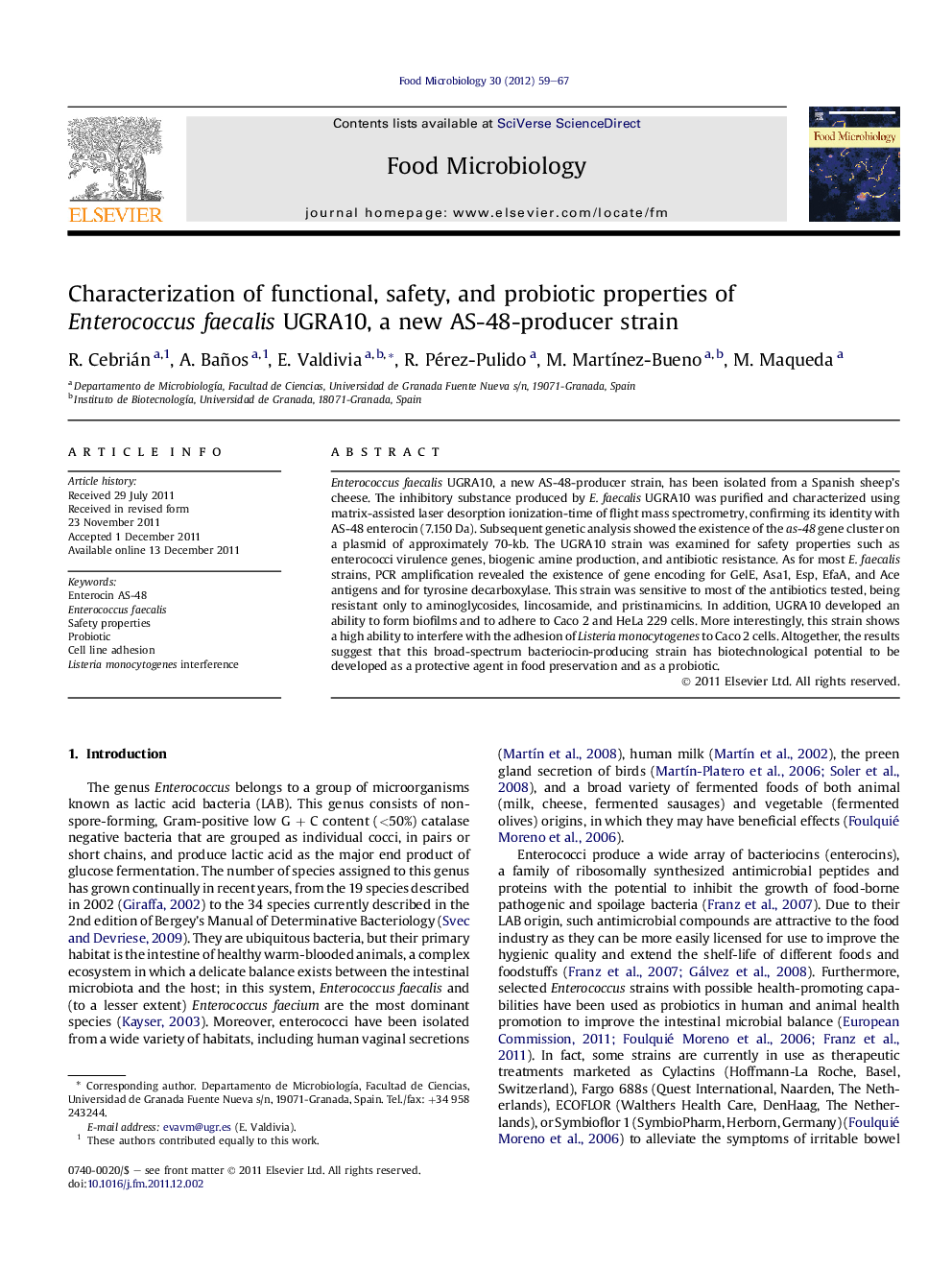| Article ID | Journal | Published Year | Pages | File Type |
|---|---|---|---|---|
| 6289062 | Food Microbiology | 2012 | 9 Pages |
Enterococcus faecalis UGRA10, a new AS-48-producer strain, has been isolated from a Spanish sheep's cheese. The inhibitory substance produced by E. faecalis UGRA10 was purified and characterized using matrix-assisted laser desorption ionization-time of flight mass spectrometry, confirming its identity with AS-48 enterocin (7.150 Da). Subsequent genetic analysis showed the existence of the as-48 gene cluster on a plasmid of approximately 70-kb. The UGRA10 strain was examined for safety properties such as enterococci virulence genes, biogenic amine production, and antibiotic resistance. As for most E. faecalis strains, PCR amplification revealed the existence of gene encoding for GelE, Asa1, Esp, EfaA, and Ace antigens and for tyrosine decarboxylase. This strain was sensitive to most of the antibiotics tested, being resistant only to aminoglycosides, lincosamide, and pristinamicins. In addition, UGRA10 developed an ability to form biofilms and to adhere to Caco 2 and HeLa 229 cells. More interestingly, this strain shows a high ability to interfere with the adhesion of Listeria monocytogenes to Caco 2 cells. Altogether, the results suggest that this broad-spectrum bacteriocin-producing strain has biotechnological potential to be developed as a protective agent in food preservation and as a probiotic.
⺠Enterococcus faecalis UGR10, an AS-48 producer, presents some Enterococcus virulence traits. ⺠UGRA10 forms biofilms, resists acid and adheres to Caco 2 and HeLa 229 cells. ⺠UGRA10 interferes with the adhesion of Listeria monocytogenes to Caco 2 cells.
